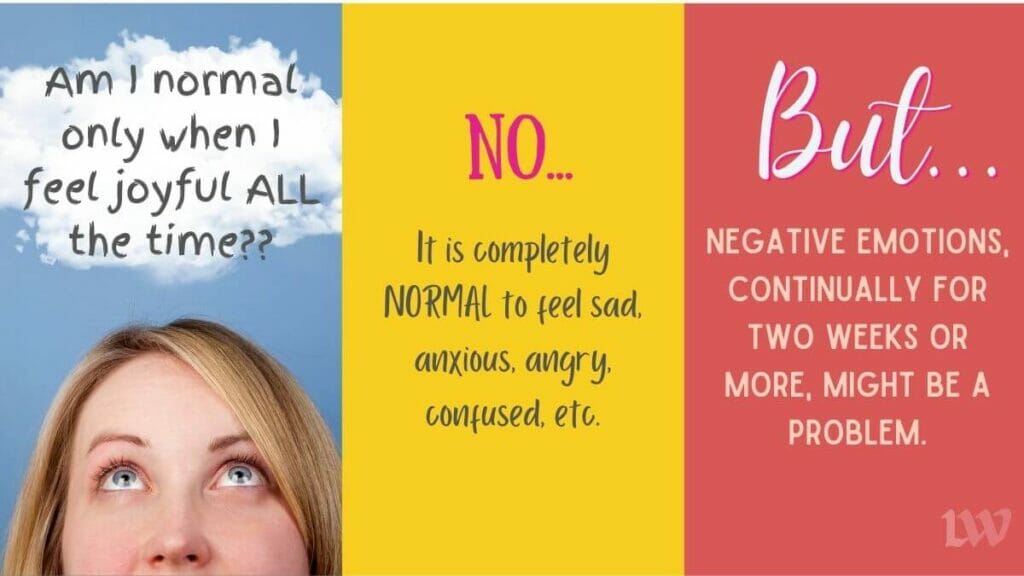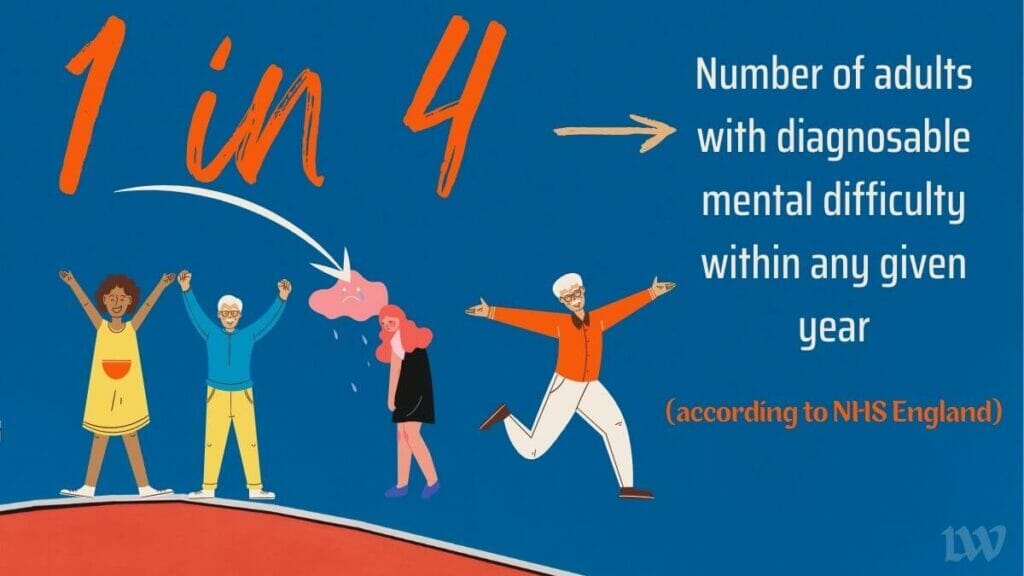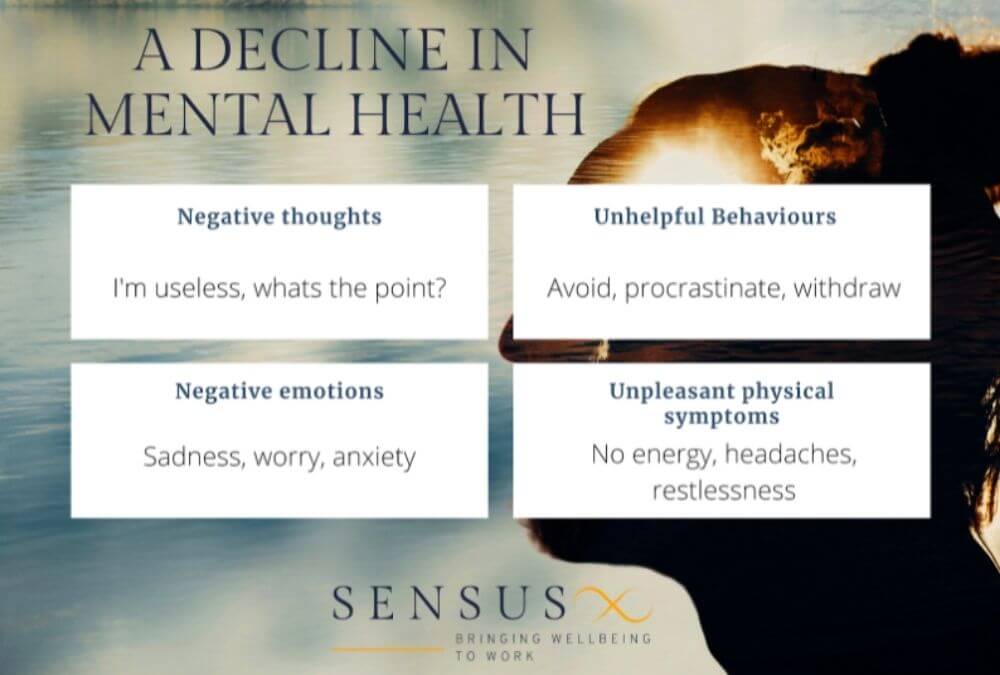In this article: Lauren Bell, Cognitive Behavioural Psychotherapist, explains what mental health is, signs to watch for with a decline in mental health, tips to help yourself, and who to seek help from in case of mental health issues.
What is mental health?
Mental health is vital for everyone. It involves our emotional, psychological, and social wellbeing and impacts how we think, feel, and behave.
Mental health has a huge impact on how we socialise, handle stress, and make important life decisions. It is influenced by a number of factors, such as our biological makeup, life experience, and current socioeconomic status.
Thus, mental health is not a simple phenomenon. It is experienced differently by everyone and is as unique as a fingerprint; there is no “One Size Fits All”.
What is considered normal mental health and what is not?

Normal mental health is difficult to define.
It is important to remember that it is normal for humans to experience a range of thoughts, emotions, physical symptoms, and behavioural responses.
No emotion is essentially ‘bad’ and how we think, feel, and behave is ok to vary. Basically, it’s entirely normal not to feel great all of the time! This moment you can feel joyful and excited, and the next moment you can feel annoyed and less enthusiastic.
But, how do you know a problem is lurking?
Our mental health becomes a problem when we start to experience an excess of negative thoughts, emotions, physical symptoms or behaviours, for a period of 2 weeks or longer.

NHS England states that 1 in 4 adults within the UK will experience a diagnosable mental health difficulty within any given year.
Symptoms that indicate the onset of a mental health problem include feeling down, depressed or hopeless, feeling excessively anxious all of the time and noticing an increase in unhelpful behaviours such as avoidance or procrastination.
To be more specific, not wanting to socialise and avoid people or keep postponing things such as your course work, office work, preparing food at home, or paying bills.
Essentially, the key to ‘normal’ mental health is balance. Noticing when the balance is off and seeking help sooner rather than later can play a vital role in helping people to stay well long term.
What can cause people to struggle with their mental health?
COVID Pandemic was a causal factor for depression in adults.

Causes of a decline in mental health can vary.
Sometimes there are very overt causes, such as a relationship break up, stress at work or trying to cope with the impact of an ongoing global pandemic.
The office of national statistics found that there was a 50% increase in adults suffering from Depression in June 2020, compared to pre-pandemic levels. In this instance, the pandemic can be seen as a direct causal factor in increasing mental health problems across the population.
Sometimes, however, the cause is not so obvious.
For example, mental health changes can be caused by chemical imbalances in the brain, hormonal changes or subtle changes in thoughts or behaviours which have no specific trigger but slowly chip away at an individual’s psychological health.
What are the telltale signs of deteriorating mental health, and how does one know it is time to seek expert help for mental health issues?

Common signs of deteriorating mental health include:
- Sleep disturbance
- Increased or decreased appetite
- Lack of interest and pleasure in doing things
- Feeling down, depressed or hopeless
- Feeling nervous, anxious or on edge
- Trouble concentrating on things
- Suicidal thoughts or thoughts of self-harm
- Irritability and restlessness
- Excessive worrying about a range of situations
- Low self-esteem and feeling like a failure
- A change in normal routine/habits
- Decreased levels of motivation
- Increased levels of procrastination
If you begin to experience any of these symptoms and if they become persistent over two weeks or more, it’s worth seeking further help and advice. It is important to remember not to suffer in silence. Seeking help can quickly nip things in the bud and can lead to the re-establishment of a healthy balance.
What are some simple tips that can help if I notice I’m struggling?
If you know that you are not feeling great and do notice a decline in your mental health, there is good news because many things can help you feel better.
- First and foremost, talking to supportive friends and family can be really beneficial.
- Secondly, there is a lot of free ‘self-help’ information out there in the form of books, websites, and apps that can help point you in the right direction.
- If you feel some more intensive support would be beneficial, then medication is also an option. Medications such as Citalopram and Fluoxetine help address chemical imbalances in the brain which can cause some of the symptoms.
- Finally, psychotherapies such as Cognitive Behavioural Therapy, Counselling and Eye Movement Desensitisation Reprocessing (EMDR) are proven to play a significant role in helping people overcome the difficulties they are experiencing.
Also Read: 5 Simple Activities That Are Great Hobbies For Mental Health
Who should one seek help from in case of mental health issues?
If you are struggling with your mental health, there are several ways you can seek help and support:
1) Visit your GP and ask to discuss your options, such as medication or a referral for psychotherapy.
2) Self refer to your local Improving Access to Psychological Therapies service (IAPT) for a free and confidential assessment. This service is specific to the UK. You can look for options available near you.
3) Source therapy privately. Make sure you choose an accredited therapist so that you know you are in the best hands. You can find accredited Cognitive Behavioural Therapists in the UK by visiting www.babcp.com or accredited Counsellors by visiting www.bacp.co.uk. Such directories are available specific to countries and demographics.
4) Discuss support options with your employer. Many employers now have their own employee support providers, such as Sensus Wellbeing, so you may be able to access help for free.
To conclude,
Awareness empowers you.
Because people are less aware of mental health, many suffer without knowing it is time to seek help. Most often, a few sessions with a therapist, talking out things can give tremendous relief and improve your mental health.
Take a note of the telltale signs of troubled mental health. And when you notice any, take help from a trained expert.
Edited by love4wellness | Images: canva.com
